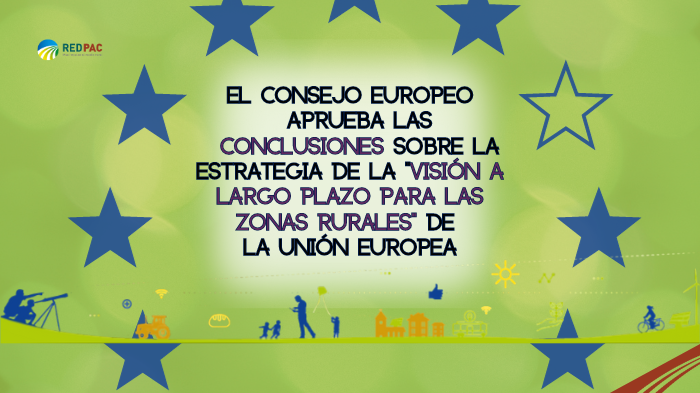
27 de November de 2023
Dinamización rural
To implement these conclusions, the Council calls on the European Commission to transform the vision into a comprehensive European Union rural strategy, with a comprehensive and flexible approach and relevant indicators.
- The Council calls on the European Commission to transform the vision into a European Union (EU) rural strategy.
- To this end, it calls for support in the digital transition, infrastructure development, the creation of a monitoring instrument to evaluate EU funding in support of rural areas, new policies for generational renewal, and improved and greater participation of women in agriculture.
Since last November 20 , rural areas have been politically recognized by the European Council as strategic areas at an economic and social level for the development of the European Union (EU), for two reasons:
- They promote prosperity, resilience, and the social and cultural fabric of rural communities.
- They are safeguards for agriculture and guarantors of food security, which are the basic pillars of the EU strategy for food systems autonomy.
For all these reasons, the European Council has approved conclusions on the strategy of the “Long-term vision for rural areas” of the EU, a communication published by the European Commission (EC) in June 2021, which aims to achieve stronger, more connected, resilient and prosperous rural communities by 2040.
These conclusions recognize the complexity and challenges currently facing these areas.
- Aging population
- Gender disparity
- Lack of services and infrastructure
These conclusions should serve as political guidance for the EC and the Member States.
Proposals for the integrated approach
In response, the Council calls on the EC to transform the long-term vision into a fully-fledged EU rural strategy . How? With an integrated approach encompassing:
- The digital transition.
- Investment in new infrastructure.
- The creation of a control instrument that would extend EU rural financing beyond the CAP.
- Policies for generational change.
- Gender perspective in rural areas.
This approach is designed in cooperation with rural residents and local and regional authorities, which is why the Council emphasizes the importance of Local Action Groups within the LEADER approach .
Actions
Some of the Council's proposals regarding each of the rural problems that must be addressed are:
- The digital transition: referred to not only as the connectivity of these areas, but also as the training and development of digital skills by their inhabitants.
- Infrastructure/Financing: The Council recognizes this as one of the most important points in achieving a vision for the future. Therefore, and to ensure that financing is streamlined with respect to investments in rural public services, the Council proposes the creation of a control instrument to support rural areas and establish guarantee procedures among EU policies and instruments serving this purpose.
- Generational change: Among the proposed solutions are facilitating young people's access to finance and land, providing them with various job and training opportunities, and involving them in local management.
- Gender perspective : Support measures include creating new job opportunities and facilitating management in supervisory bodies for women. Women's equal participation in agriculture is also a key objective in this regard.
To translate these conclusions into reality, the Council calls on the Commission to transform the vision into a comprehensive EU rural strategy, with a comprehensive and flexible approach and relevant indicators. Furthermore, it encourages Member States to further engage in the Rural Pact and to continue developing rural strategies at national, regional, and local levels.









